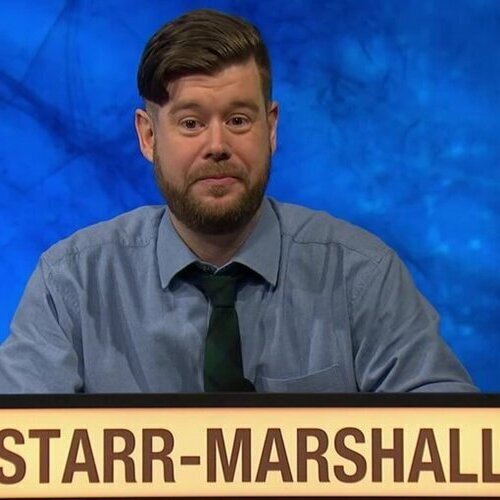Tell us a little bit about your background...
I’m originally from London. My undergraduate degree was in English Literature at Goldsmiths College (University of London). I qualified as a Speech and Language Therapist in 2008 from City University, Lon-don. I worked in several paediatric settings around London and took an interest in Speech Sound Disorders i.e. children who have difficulty producing sounds in speech correctly. I completed my master’s project investigating the effect of audio and video recording on the phonetic transcriptions of children with SSDs.
I took an immediate interest in speech research. I have since carried out research into the use of slow-motion video for phonetic transcription of children with SSDs and for learning and teaching purposes at both City and Canterbury Christ Church Universities. I have worked as a Research Associate at Great Ormond Street Hospital for Children in London investigating the use of Pre-Surgical Orthopaedics with children with Cleft Lip/Palate.
I have a particular interest in teaching phonetics. I have taught phonetics at University of Westminster, University of Portsmouth, Canterbury Christ Church University and University College London. I completed a Post Graduate Certificate in Academic Practice in 2017.
I started my PhD at Strathclyde in 2018. My study aims to investigate whether typically developing children decrease the degree of coarticulation as their vocabulary improves. This would indicate whether as their vocabulary improves, they plan their speech using smaller units
What (or who) inspired you to study Speech and Language Therapy?
I had always been interested in how language works which is why I studied English at undergraduate level. After graduating I worked in a hospital where I spoke to some Speech and Language Therapists who wouldn’t take no for an answer and booked me onto a prospective student course they were running. I loved everything I saw as it tied together my interest in language with my interest in science and was something useful.
What has been the highlight of your studies so far?
The highlights of studying at Strathclyde have been the opportunities for travel. I really enjoyed travelling to Malta for the International Clinical Phonetics and Linguistics Association conference. I had also arranged to carry out an internship in Germany which unfortunately was unable to go ahead due to the Covid-19 pandemic. I would definitely encourage students to take up opportunities for travel during their studies.
How have you found studying for a PhD in comparison to your other studies?
PhD study is very different to taught study. The responsibility very much stops at you as to how you want the direction of your study to go. In my case I was able to develop my own topic and research questions. Alongside the Research Development Program, it basically teaches you how to be an independent academic from getting an initial idea and developing it to obtaining funding and carrying out a complete research project to the point of publication.
Have you used any of the support systems available to PhD students?
It has been useful to be able to speak to wellbeing and financial services during the 2020 Covid-19 pandemic. My supervisors have been excellent especially as I have had to develop a new project due to the pandemic occurring at the exact time I was meant to be collecting data. These difficult times are a steep learning curve but I have felt well supported by my supervisors. However, financing any possible extension due to delays caused by lockdown continues to be a worry for many PhD students.
What advice would you give to someone considering Speech and Language Therapy?
The main piece of advice I would give to someone considering a career in Speech and Language Therapy would be to speak to as many practising therapists as possible. It is a very varied job with many different specialities. It’s important to remember that it doesn’t just qualify you to be Speech and Language Therapist, you could end up working in academic linguistics/phonetics. Even the occasional job at Mi5 has been advertised.
What are your ambitions for the future?
The main reason for doing a PhD was to continue in an academic career. I aim to continue research speech planning and the effect it has on Speech Sound Disorders. I would also like to look into working overseas; having a PhD is definitely a good passport for doing that. However, I think research experience can also help clinicians to better meet the needs of their clients and improve patient outcomes. So, I would recommend undertaking a PhD to any practising Speech and Language Therapist.
You recently featured on University Challenge. Please tell us about your experience.
I have really enjoyed competing for University of Strathclyde on University Challenge. To be part of the first Strathclyde team to make Quarter-Finals of the show has been an unexpected bonus. I think it shows that Speech and Language Therapists have an eclectic mix of knowledge which is not just useful for the job. I've been able to answer questions on anatomy and phonetics and, in the test quizzes, on development psychology and linguistics. For this reason, I would encourage any Speech and Language Therapy Students to try-out for the show for next year...You never know! It’s great experience getting to meet so many young and talented academics from across the country and the production team are very supportive. Jeremy Paxman is not as scary as you think!
Any final points, or words of wisdom?
I chose Strathclyde to do my PhD because they were the best place in the country for Ultrasound Tongue Imaging. My advice to prospective PhD students would be to look at what expertise and support your supervisors can offer you. My supervision team are experts in the specific field I am studying but it was also important to know that I could work with them on a personal level too. I would advise any potential PhD students to contact potential supervisors before applying where possible.

